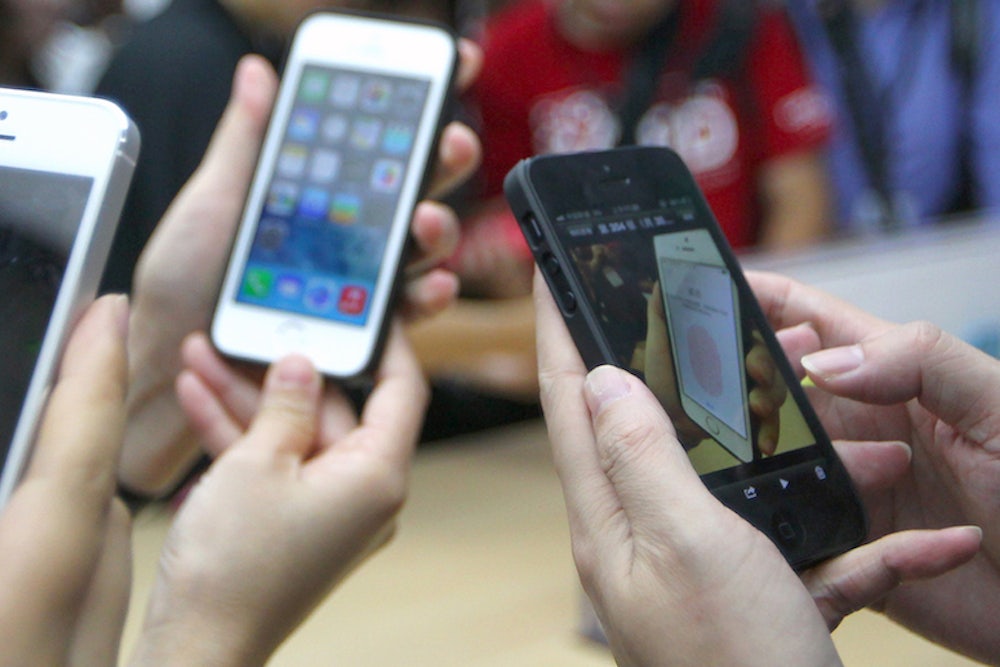On Thursday, the eve of China's Spring Festival, I learned that Chinese friends were sending each other hongbao, or red envelopes full of money. Nothing unusual there—it's an old New Year's tradition to exchange wads of cash. Except these red envelopes weren't real. They were being sent via the ubiquitous social networking app WeChat. Great, I thought, a crass holiday tradition made even crasser. Go, Internet. But then I clicked on a red envelope that a friend had sent out to a chat group, which works like a lottery. And I made 0.42 yuan! (6.89 cents) I felt lucky, loved, and incrementally richer. An auspicious start to the Year of the Horse. This centuries-old tradition, I decided, was awesome.
Since its debut in 2011, WeChat has become the envy of China's social networking space. And in doing so, it has all but laid to rest the question of "Can China innovate?" WeChat has seized on the particular needs and opportunities of the Chinese market, from the rise of mobile to the declining relevance of Weibo to the fact that most Chinese people don't use credit cards (yet). Along the way, it's developed a combination of services that no American company can rival, red envelopes being only the latest example. Even American app companies are admitting they can learn from WeChat.
Early on, WeChat was a simple chat app with a walkie-talkie-like voice feature and a personal message board to which users could post photos with commentary. From there, they tacked on one subtly genius feature after another: "Look Around," which shows you who's nearby; "Shake," which connects users to other people shaking their phones at the same time; and a steadily expanding supply of gifs, or "Stickers," that keep conversation fresh and silly. The result was a deeply addictive chat experience that has attracted nearly 300 million users worldwide.
The problem was, like a lot of promising startups, it wasn't making money. So last year, parent company Tencent raised the stakes by linking its online payment tool, Tenpay, to WeChat. That opened the door to paying for games and special gifs, plus one-time promotions like discounts on vending machine purchases and a November sale of 150,000 Xiaomi phones, which sold out in 10 minutes. More than 20 million users make purchases through WeChat, Tencent told Caixin in January, with an additional 200,000 people signing up every day.
WeChat wasn't the first company to make online payments hot: Alibaba, the e-commerce giant, had already created Alipay, which has a user base of 800 million and last year processed $5.7 billion worth of payments during the Singles Day shopping spree. But the WeChat payments system has the benefit of a pre-existing social network on which to build its e-payment scheme. (Alibaba has created its own chat app, Laiwang, but its user base still lags far behind WeChat.)
Hence the brilliance of the red envelopes. In order to send or receive one, you have to sign up for WeChat payments. Once you do, a universe of spending options opens up, and not just cute animated bunny rabbit emoji. If Tencent's plans materialize, you'll soon be able to use WeChat to pay for movie tickets, taxi fares, and flights. Your money can grow, too. On January 22, Tencent introduced its first financial-services product, a fund run by China's largest mutual fund manager that promises a seven-day annualized yield of over 7 percent. (Again, Alibaba was there first.) Users have already invested a reported 10 billion RMB, or $1.64 billion.
Linking user accounts to bank accounts is the holy grail of social networks. Advertisers could target customers with frightening efficiency, since an actual purchase is a stronger indicator of future behavior than a "Like." Group discounts would come naturally, given the social links between accounts, as would location-based deals. The effect on China's banking system could be enormous. While the current online funds offered by Tencent and Alibaba aren't big enough to seriously disrupt the big Chinese banks, they've already forced them to adapt: The five biggest banks have raised deposit rates, and at least two major financial institutions have launched their own platforms on WeChat.
WeChat isn't the only company vying for ultimate chat/social network/mobile payment/online banking all-in-one mega-site status. Facebook has tried to get users to buy stuff, notably with Facebook Gifts, but last year it abandoned physical gifts in favor of digital purchases like iTunes gift cards. They've also tested out a program that lets users send priority messages for $1. Other companies have nailed certain pieces of the package: WhatsApp does chat right, Google Wallet is making inroads with mobile purchases, and SnapChat's got a nice foothold among the kids. But no foreign company combines all these services into one monster app.
Alibaba comes close. The e-commerce giant is currently beating WeChat on the online purchase and banking fronts, if not when it comes to social networking. Indeed, WeChat has ripped a bunch of features from Alibaba, including the red envelopes. But Alibaba has borrowed right back. This back-and-forth war of imitation has ironically turned both companies into two of the most innovative players on the planet. In the past, we've heard a lot about Chinese companies mimicking foreign competitors. Soon we might be hearing the reverse.
